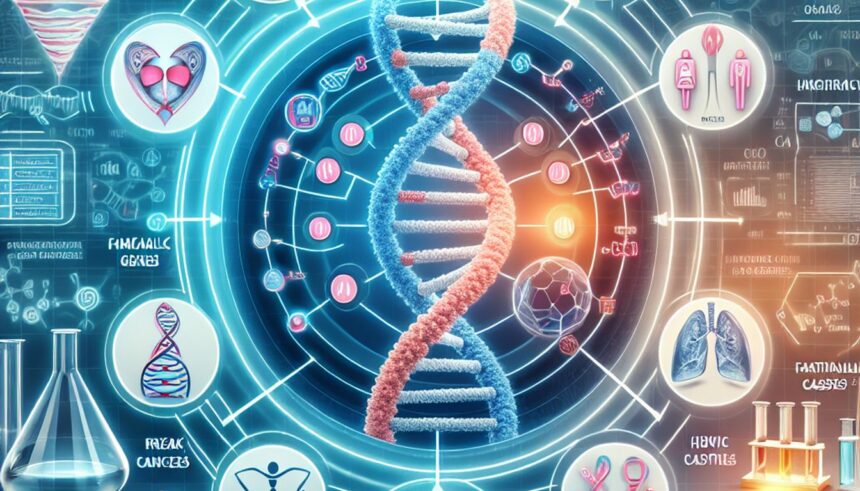Understanding the intricate relationship between genetics and breast cancer has evolved from broad epidemiological studies to pinpointing specific genetic variants that significantly impact risk factors. Breast cancer, more than just a disease of consequence, involves a complex interplay of genetic predispositions and environmental factors. This exploration into the genetic factors enlightens us on why some familial cases of breast cancer are more prevalent and aggressive, thus opening the door to preventative strategies and personalized treatments.
What are Genetic Variants and Their Role in Breast Cancer?
Genetic variants are alterations in DNA that make each person unique but can also predispose individuals to diseases like breast cancer. These variants can be as minor as a single base change in the DNA sequence, yet they can dramatically alter the risk of developing breast cancer. Recent studies have shed light on how these small changes can disrupt normal cell functions, leading to malignancy.
The Significance of Familial Cases in Breast Cancer Research
When discussing breast cancer, familial cases provide crucial insights. These are scenarios where breast cancer is more common in families than in the general population, often due to shared genetic factors. Hereditary breast cancer makes up about 10% of all breast cancer cases and studying these familial cases helps researchers identify specific genes associated with higher risk.
Identifying Key Risk Genes
Through rigorous genetic screening, scientists have identified numerous risk genes that play pivotal roles in the development of breast cancer. BRCA1 and BRCA2 are the most well-known genes associated with a high risk of breast cancer and ovarian cancer. However, beyond these, recent studies have identified additional genes that contribute to breast cancer risk, emphasizing the diversity and complexity of genetic factors involved.
Breakthroughs in Genetic Research and Breast Cancer
Advancements in genetic research have led to breakthrough discoveries about how genetic variants influence breast cancer development. These discoveries are crucial for developing targeted therapies that can potentially save millions of lives. Furthermore, understanding these genetic factors allows for better screening and preventive measures, tailored to individuals based on their genetic makeup.
Preventative Strategies and Personalized Medicine
The knowledge of genetic variants linked to breast cancer paves the way for preventative strategies. For individuals with a family history of breast cancer, genetic testing becomes a pivotal tool, guiding decisions about preventive measures such as lifestyle changes, medications, or even surgeries. Moreover, the era of personalized medicine has benefited from these findings, as treatments can now be tailored to target specific genetic pathways involved in an individual’s cancer development.
The Future of Genetics and Breast Cancer
The research linking genetic variants to breast cancer is ever-evolving, promising a future where breast cancer can be intercepted before it even begins. As scientists continue to unravel the genetic underpinnings of breast cancer, the focus is broadening from treatment to prevention, offering hope for effective solutions to reduce the global burden of this challenging disease.
This deep dive into the genetic factors of breast cancer not only enhances our understanding but also empowers individuals and families to take proactive steps in managing their health in a scientifically informed way. With ongoing research, the link between genetic variants and breast cancer will further clarify, offering new avenues for science and medicine to combat this prevalent form of cancer more effectively.
In conclusion, while genetic factors play a significant role in breast cancer, they do not define destiny. Knowledge and understanding of these factors are empowering individuals to make informed decisions about their health, leading to advancements in personalized medical interventions and preventive strategies that could potentially save lives.







